- Home
- Peter F. Hamilton
The Mandel Files, Volume 2: The Nano Flower Page 2
The Mandel Files, Volume 2: The Nano Flower Read online
Page 2
Because Event Horizon was registered in England, the rock came under the jurisdiction of the English parliament, who named it New London and established a Crown Colony in the hollowed-out core. New London ushered in an era of ultra-cheap raw materials, which were eagerly consumed by the necklace of microgee factories in low orbit above the equator, doubling their profitability virtually overnight. Mining chunks of rock from New London was easy enough, but refining metals and minerals out of the ore in a freefall environment presented difficulties, that was where the real money lay.
It was a problem which had led Suzi to a second-floor bistro in Peterborough’s New Eastfield district on a muggy day in January. She was thankful for the bistro’s smoked-glass windows and air conditioning; the building opposite was buffed white stone, inlaid by balconies with mock-Victorian ironwork. It gleamed like burnished silver from the low sun. The street below was a flux of people, men in spruce shirts and shorts, salon-groomed women in light dresses, most of them with wide-brimmed hats, all of them with sunglasses. Silent cars glided down the rain-slicked road, bumper to bumper Mercs, Jags, and Rollers. New Eastfield had been ascendant even in the PSP years, but since Event Horizon cracked giga-conductor technology and reindustrialization went into overdrive the district had become a beacon for the smart money and the brittle, propitious lifestyle which went with it.
‘Morrell have developed a cold-fusion solution to ionic streaming,’ said the man sitting opposite her. He was in his late thirties, with a gym-installed muscle-tone to complement his salon manicure. An image as tabloid as his power-player attitude. The name he gave her was Taylor Faulkner.
Suzi’s tame hotrod, Maurice Picklyn, had run a tracer on him for her, and that actually was his name. Working for Johal HF in their orbital refinery division, executive rather than technical.
‘Cold fusion?’ Suzi asked.
‘Pie in the sky,’ Faulkner sighed. ‘Too good to be true. But somehow they’ve done it, boosted efficiency and lowered power consumption at the same time. Old story; small companies have to innovate, they don’t have the research budget that shaves off a percentage point each year.’
She sipped at her orange juice. ‘And you want to know what they’ve got?’
‘Yes. They’ve finished the data simulation, now they’re starting to assemble a prototype. Once that’s been demonstrated, they’ll be given access to kombinate-level credit facilities by the banks and finance houses. They’ve already asked for proposals from several broker cartels; which is how we found out what they’re working on.’
‘Humm.’ Suzi used her processor implant to review the data profile Maurice Picklyn had assembled on Johal HF; a fifth of their cashflow came from refining New London’s rock. ‘What’s my budget?’
‘Four hundred K, New Sterling.’
‘No, seven hundred. The licence alone would cost you that, even if Morrell grant you one, and then you’d be paying them royalties straight out of your profits.’
‘Very well.’
She took a week to review Morrell’s security layout. The company had taken a commercial unit on a landfill site that used to be one of the Tyne’s shipyards. Its research labs and prototype assembly shop were physically isolated, a cuboid composite building sitting at the centre of a quadrangle formed by offices and cybernetics halls. And there was a lot of weapons hardware in the gap. The only way in to the research section was through the outer structure, then over a small bridge, clearing five security checks on the way. A team of psychic nulls working in relay prevented any espersense intrusion. The research division mainframe wasn’t plugged in to any datanet, so no hotrod could burn in. She had to admit it was a good set up. The only way to breach it physically would be an airborne assault. That lacked both finesse and an acceptable probability of success.
She started to review personnel, which led to the discovery of the company’s blind spot. Because it was impossible to physically carry data out of the research building, Morrell security only vetted the workers once a year, a full data and espersense scan.
Maurice Picklyn found her three possibles from the ionic streaming project’s research team, and she selected Chris Brimley, a programmer specializing in simulating vacuum exposure stresses: unmarried, twenty-nine, unadventurous, a Round Tabler whose main interest was fishing. He lived by himself in Jesmond, renting a flat in a converted terrace house. A perfect pawn.
Suzi did a deal with Josh Laren, a local small-time hood who owned a nightclub, L’Amici, which had a gambling licence. She set up Col Charnwood, a native Geordie and one of her regular team, with a stash of narcotics any pusher would envy. Paid Jools the Tool to stitch together the cockroach. Then to complete the operation, she called Amanda Dunkley up to Newcastle. Amanda Dunkley had a body specifically rebuilt for sin, with a small rechargeable sac at the base of her brain which fed themed neurohormones into her synaptic clefts. The psychic trait which the neurohormones stimulated was a very weak ESP, giving her an uncanny degree of empathy. Maurice Picklyn manufactured a fresh identity for her, and Suzi got her a secretarial job at the city council building.
Three days after Chris Brimley bumped into Amanda in his local pub, his old girlfriend had been dumped. Two days after that Amanda had moved into his flat. In the house on the other side of the street, which Suzi had leased as a command post, she and the rest of her team settled down in front of the flatscreens and enjoyed themselves watching the blue and grey photon-amp images of Chris Brimley’s bedroom. It took Amanda a week and a half to corrupt his body with her peerless sexual talent. After long nights during which his whole body seemed to be singing hosannas he told her he wanted them to be together for ever, to get married, to live happily in a picturesque cottage in a rural village, for her to have ten babies with him. Corrupting his mind took a little longer.
Chris Brimley slowly came to the realization that his life didn’t offer much in the way of interest to his newfound soul mate. They began to venture out at the weekends, then it was two or three nights a week. They discovered L’Amici, which Amanda loved, which made him happy. Col Charnwood introduced himself, so delighted to be their friend he gave them a gift. Nibbana, one of the most expensive designer drugs on the market, though Chris Brimley didn’t know that.
He tried a few chips on the table, egged on by an excited Amanda. It was fun. The manager was surprisingly relaxed about credit.
After two months Chris Brimley had a nibbana habit that needed three regular scores a day to satisfy, and a fifty-thousand-pound New Sterling debt with L’Amici. They couldn’t afford to go out any more, and now Amanda cried a lot in the evening, showering him with concern. Chris Brimley had actually slapped her once when she found him searching her bag for money.
Josh Laren’s office was a dry dusty room above L’Amici, the only furniture his teak desk, three wooden chairs, and an antique metal filing cabinet. Ten cases of malt whisky, smuggled over the Scottish border, were stacked against one wall.
Col Charnwood spent an hour going over the room with a sensor pad, sweeping for bugs. It wasn’t that Suzi mistrusted Josh Laren; in his position she would have wired it up.
The trembling Chris Brimley who walked into that office was unrecognizable as the clean-cut lad of two months previously. Suzi even felt a stab of guilt at his condition.
‘I thought—’ Chris Brimley began in confusion.
‘Sit,’ Suzi told him.
Chris Brimley lowered himself into the seat on the other side of the desk from her.
‘You came here to discuss your debt, right?’ she asked.
‘Yes. But with Josh.’
‘Shut the fuck up. For a welsh this size Josh has come to me.’
‘Who—’
Suzi split her lip in a winter grin. ‘You really wanna know?’
‘No,’ he whispered.
‘Good, maybe you’re beginning to realize how deep you’re in, boy. Let me lay it out for you, we’re gonna get that money back, every penny. My people had a lot of practice
at that, never failed yet. Why we get called in. Two ways, hard and soft. Hard: first we clean you out, flat, furniture, bank, the same with that little slut you hang out with, then we start working down your family tree. We see that Morrell gets to know, they fire you, you’re instant unemployable.’
‘Oh, Jesus.’ Chris Brimley covered his face with his hands, rocking back and forth in the chair.
‘Think maybe I’d better tell you the soft before you piss yourself,’ Suzi said.
Suzi halted the cockroach below a toilet downpipe. Her implant’s time function told her it was eleven thirty-eight. Ninety seconds behind schedule, not bad at all.
Climbing up the downpipe was slow going. She had to concentrate hard, picking ridges for a secure foothold. Two metres. There was a rim where the concrete pipe slotted into a stainless-steel one.
She stood the cockroach on its back legs, pressing it against the smooth vertical wall of stainless steel. Her perspective made it seem at least a kilometre high. Three snail-skirt buds on the cockroach’s underbelly flared out and stuck to the silvery metal. It began to slide up the featureless cliff face.
‘Pull the ionic streaming data from Morrell’s research mainframe and squirt it into your cybofax,’ Suzi told an aghast Chris Brimley.
‘What? I can’t do that!’
‘Why? Codes too tough?’
‘No. You don’t understand. I can’t take a cybofax into the research block. Hell, we’re not even allowed to wear our own clothes inside; security makes us change into company overalls before we enter. We’re scanned in and out’
‘Yeah, Morrell security’s got a real fetish about isolation. But you’ve got the use of a cybofax in the research building, aintcha?’
‘A company one,’ Chris Brimley answered.
‘Good. And you can pull the data from the terminals no sweat?’ Suzi persisted.
‘Yes, my access codes are grade three. My work is applicable to every component of the refiner. Loading it into a cybofax would be unusual, but nobody would question it. But I can’t bring it out.’
‘Not asking you to. Point is, you can move that data around anywhere you like within the research building.’
Without the directional graphics providing constant guidance updates, Suzi would never have made it round the U-bend. The water confused the cockroach’s infrared vision, and there were too many curves.
It was eleven forty when the cockroach rose out of the water, clinging to the side of the stainless-steel toilet bowl. She wondered what it must look like to Chris Brimley, a demon insect sliding up silently to bite his arse.
The infrared cut out, leaving her at the bottom of a giant silver crater; a uniform sky of pink-white biolum light shone overhead. She saw something moving above her, dark and oblong, expanding rapidly. Brimley’s cybofax. There was a flash of red laser light way down on the borderline of visibility. An answering pulse from the Frankenstein cockroach.
Loading Data, her implant reported; its memory clusters began to fill up.
Suzi knew Chris Brimley was saying something, the cockroach’s pressure-sensitive cells were picking up a pattern of rapid air compression. But there was no way of telling what the words were, not without proper discrimination programs. She just hoped there was no one in the next cubicle.
Loading Complete.
She slackened the snail skirts’ grip on the stainless steel. There was a blurred swirl of silver and pink-white streaks as the cockroach fell back down to the bottom of the bowl. Chris Brimley pressed the flush, and the world vibrated into black.
Initiate Internecine Procedure.
The electroplaque cells discharged straight into the body of the Frankenstein cockroach, roasting it in a millisecond.
Disengage Optical Lead.
Suzi’s coccyx interface sealed. The end of the optical fibre dropped into her toilet bowl. She pressed the chrome handle for a full flush, then tugged her panties and skirt back up.
The elapsed time was seven minutes, her bioware implant told her as she left the toilets. Outside she was Karren Naughton again, one of eight hopeful candidates for a job on Morrell’s main reception desk.
She rejoined the other girls sitting in the personnel department waiting-room. It was in the outer ring of buildings, a low-security area where visitors came and went all day.
It was still the tea break. Earlier on the candidates had been given assessment tests, now it was the separate interviews. Suzi wanted to skip them, plead a queasy stomach and leg it out on to the street. The stolen data seemed to gleam like a sun-lanced diamond in her brain. Everyone would be able to see it. She held her place, discipline was something Father had drilled into her all those years ago. Unless you are about to be blown, don’t ever break cover. Chris Brimley didn’t know it was her on the other end of the optical fibre, didn’t know where the Frankenstein had been infiltrated into the sewer system.
Karren Naughton was third to be called. She sat in a glass-walled office being sincere to a woman whose big lapel badge said her name was Joanna.
Twenty minutes later, after being told she was first-rate material Suzi walked out of the sliding glass doors and into the wall of humidity rolling off the Tyne.
Col Charnwood picked her up, driving a navy-blue low-slung Lada Sokol with one-way glass.
‘Well, pet?’ he asked after the gull-wing door hinged down.
Suzi allowed herself a smile, breath coming out of her in a rush. ‘In the bag.’
‘All right!’ Col Charnwood flicked the throttle and accelerated into the thick stream of traffic along the base of the river’s embankment. The huge slope was covered by the thick heart-shaped leaves of delicosa plants that had twined around the rocks.
‘I’ll squirt it down to Maurice, let him give it a once-over first,’ Suzi said.
‘Ya think he’ll know if it’s kosher?’
‘Maybe not, but he’ll know if it’s connected with ionic streaming. I’m no ’ware genius. Brimley could’ve palmed us off with the data construct of a steam engine for all I know.’
There was a serpent of red tail-lights growing in front. Col Charnwood swore at them as he slowed. The road was contra-flowed ahead, long rows of cones stretched across the thermo-hardened cellulose surface. Suzi could see heavy yellow-painted contractors’ machinery moving slowly along the embankment. They were stripping the shell of rock and vegetation from the mound, exposing the dark blue-grey coal slag underneath.
‘Canna leave anything alone,’ Col Charnwood muttered.
Suzi didn’t say anything. She knew Col had been one of the thousands who had built the embankment over a quarter of a century ago. A third of Newcastle’s population had signed on with the city council’s labour crews as the West Antarctic ice-sheet went into slushdown, and most of the rest had contributed at some time or another. Men, women, and children using JCBs, wheelbarrows, spades, picks, sacks, anything they could lay their hands on to haul the slag out of the barges, dumping it on the fifteen-metre-high mounds along the Tyne’s banks. They rolled the rocks into place on top of the slag with ropes and pulleys, a protective crust against wave erosion. Working round the clock for a solid nine months to save their city from the rising sea level.
‘Never been anything like it,’ Col Charnwood had told Suzi and the team late one night when they had tired of Amanda’s gymnastic antics. ‘Like something out of the Third World, it was. Bloody thousands of us, there were. Swarming like flies over the muck. Didna matter who you were, not then. We all worked ten-hour shifts. The money was the same as you’d get paid by the benefit office for being on the dole. But it was our city we were protecting. That meant something in them days, ya know?’
Now the embankment was being refurbished, centimetre by centimetre. Tracked machinery that crunched up the rock, heated it, spun it into fibres, then laid it down over the slag mounds which had been re-profiled for improved hydrodynamic efficiency, a glassy lava flow that would hold back the Tyne for a century.
‘Cutting our hea
rt out of it,’ Col said sadly.
Suzi looked closely at the machinery as they passed, seeing the small Event Horizon logo on each of the lumbering rock smelters, a blue concave triangle sliced with a jet-black flying V.
‘We unplugging from the deal, pet?’ Col asked.
Suzi visualized Chris Brimley, shorn of all dignity, helpless eyes pleading with her. A victim of deliberately applied psychological violence. ‘Not straight away, no. I want Amanda to put Brimley back together again first. The money from this will pay his debts to L’Amici. She can get him to break his habit. After that I’ll pull her out. He’ll have a chance at life again.’
Col shot her an uncertain glance.
‘Where’s your sense of style, Col?’ she asked, smiling. ‘We make a soft exit. This way Morrell doesn’t find out for at least another five months. Maybe never. People have a way of forgetting the worst, glossing over the nightmares. Morrell’s security psychics might not spot his guilt next time they vet him. Be nice to think.’
‘Well, you’re paying, pet.’
‘Yeah, I’m paying.’ An expensive treatment to wipe the memory of that broken man with the bowed head in Josh Laren’s dim echoing office. Buying off her own guilt.
This time it was a pub in Longthorpe, a long wood-panelled, glass-fronted room originally built to serve the Thorpe Wood golf-course as a clubhouse. Now it looked out over the Ferry Meadows estuary where the golf-course used to be. Taylor Faulkner had taken a window table, staring across the grey-chocolate mud-flats which the outgoing tide had uncovered. He was dressed in an expensive white tropical-weave suit, toying with a tall half-pint glass of lager.
Suzi slid on to the bench opposite him. The barman had glanced at her when she came in, drawn by her size, about to object to a schoolgirl waltzing in, then he met her gaze.
‘We hadn’t heard,’ Taylor Faulkner said. ‘It’s been very quiet in Newcastle.’

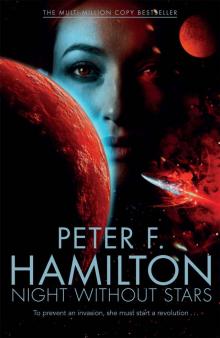 A Night Without Stars
A Night Without Stars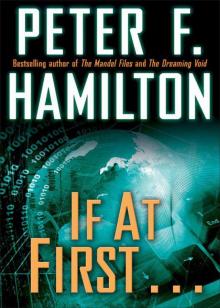 If at First . . .
If at First . . .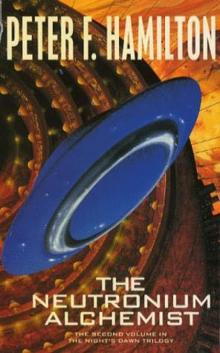 The Neutronium Alchemist
The Neutronium Alchemist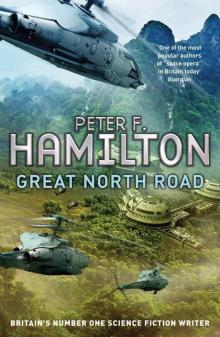 Great North Road
Great North Road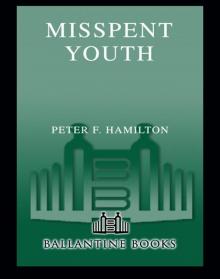 Misspent Youth
Misspent Youth Pandora's Star
Pandora's Star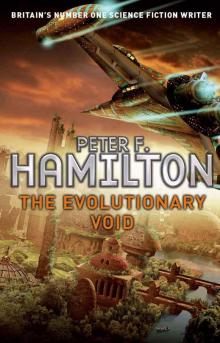 The Evolutionary Void
The Evolutionary Void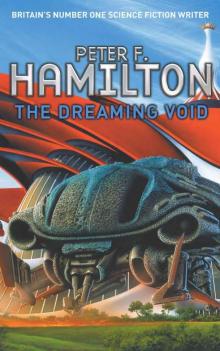 The Dreaming Void
The Dreaming Void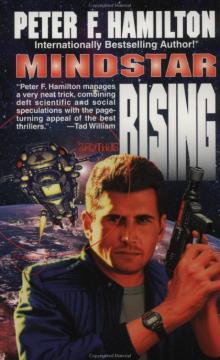 Mindstar Rising
Mindstar Rising The Temporal Void
The Temporal Void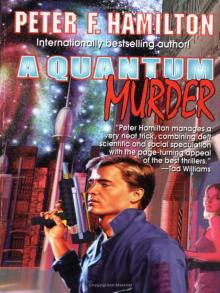 A Quantum Murder
A Quantum Murder The Hunting of the Princes
The Hunting of the Princes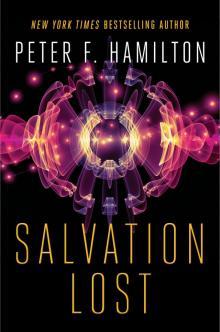 Salvation Lost
Salvation Lost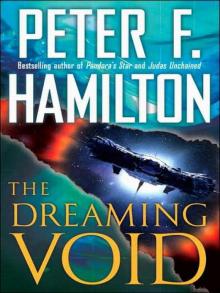 The Dreaming
The Dreaming Salvation
Salvation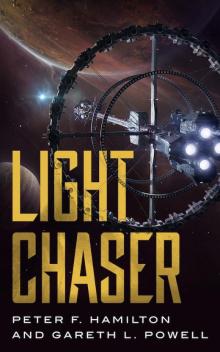 Light Chaser
Light Chaser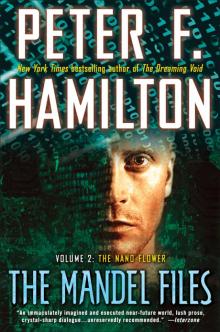 The Mandel Files, Volume 2: The Nano Flower
The Mandel Files, Volume 2: The Nano Flower![The Saints of Salvation [British Ed.] Read online](http://i1.bookreadfree.com/22/the_saints_of_salvation_british_ed__preview.jpg) The Saints of Salvation [British Ed.]
The Saints of Salvation [British Ed.]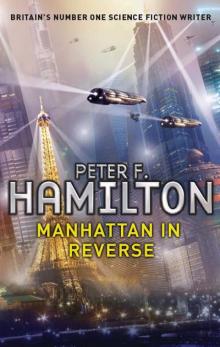 Manhattan in Reverse
Manhattan in Reverse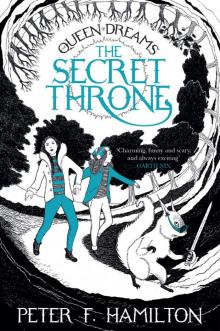 The Secret Throne
The Secret Throne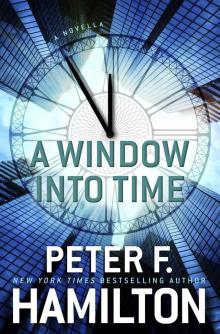 A Window Into Time
A Window Into Time A Second Chance at Eden
A Second Chance at Eden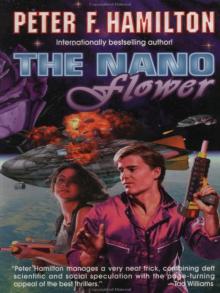 The Nano Flower
The Nano Flower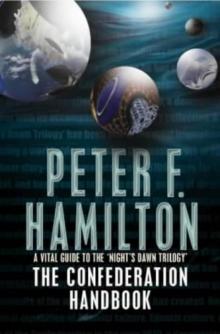 The Confederation Handbook
The Confederation Handbook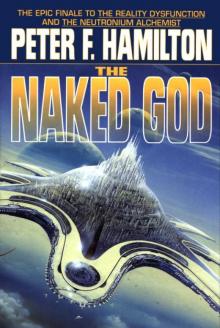 The Naked God
The Naked God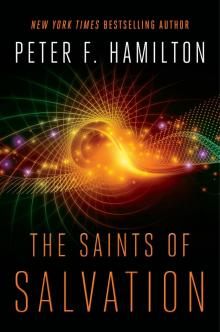 The Saints of Salvation
The Saints of Salvation The Void Trilogy 3-Book Bundle
The Void Trilogy 3-Book Bundle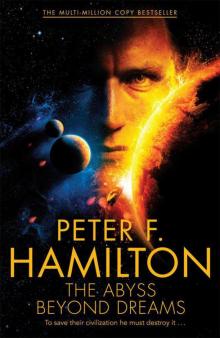 The Abyss Beyond Dreams
The Abyss Beyond Dreams A Voyage Through Air
A Voyage Through Air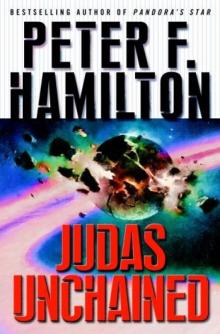 Judas Unchained
Judas Unchained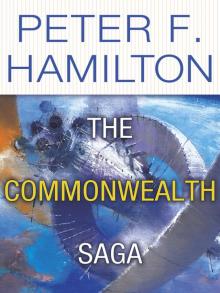 The Commonwealth Saga 2-Book Bundle
The Commonwealth Saga 2-Book Bundle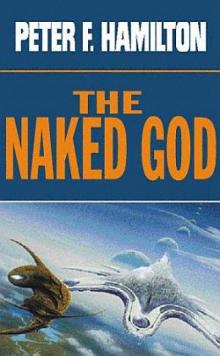 The Naked God - Flight nd-5
The Naked God - Flight nd-5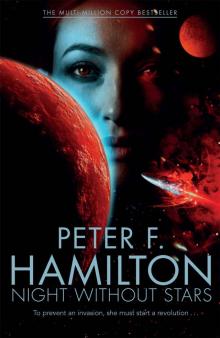 Night Without Stars (Chronicle of the Fallers Book 2)
Night Without Stars (Chronicle of the Fallers Book 2)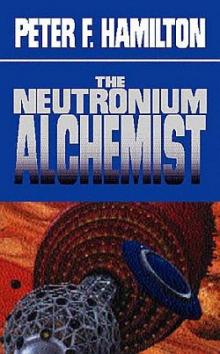 Neutronium Alchemist - Conflict nd-4
Neutronium Alchemist - Conflict nd-4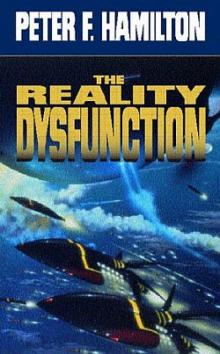 Reality Dysfunction - Expansion nd-2
Reality Dysfunction - Expansion nd-2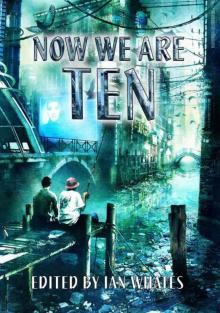 Now We Are Ten: Celebrating the First Ten Years of NewCon Press
Now We Are Ten: Celebrating the First Ten Years of NewCon Press Neutronium Alchemist - Consolidation nd-3
Neutronium Alchemist - Consolidation nd-3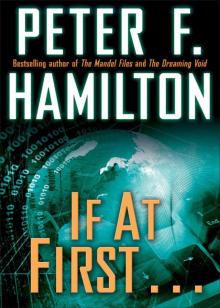 If at First . . . (Short Story)
If at First . . . (Short Story) A Second Chance at Eden nd-7
A Second Chance at Eden nd-7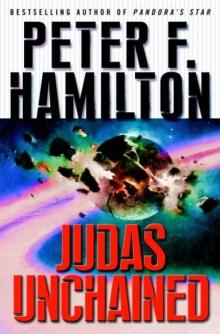 Judas Unchained cs-2
Judas Unchained cs-2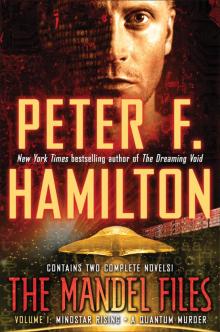 The Mandel Files, Volume 1
The Mandel Files, Volume 1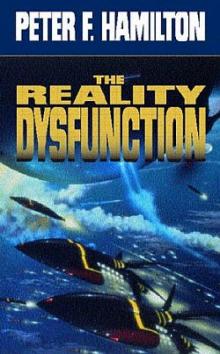 Reality Dysfunction — Emergence nd-1
Reality Dysfunction — Emergence nd-1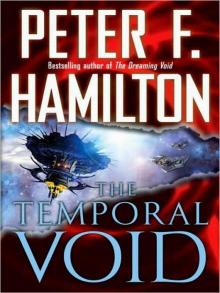 The Temporal Void (ARC)
The Temporal Void (ARC)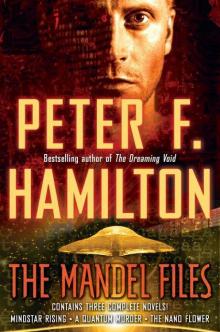 The Mandel Files
The Mandel Files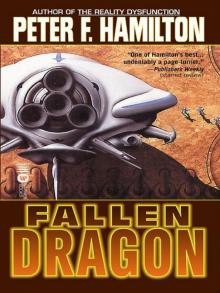 Fallen Fragon
Fallen Fragon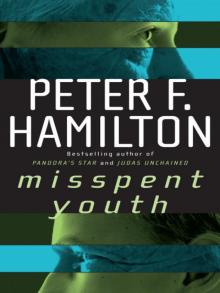 Misspent Youth (commonwealth saga)
Misspent Youth (commonwealth saga)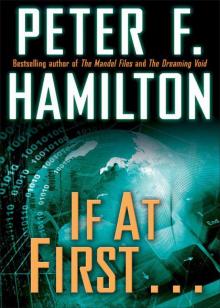 If at First...
If at First... Best of British Science Fiction 2016
Best of British Science Fiction 2016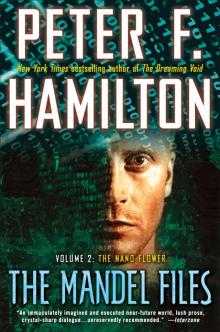 The Mandel Files, Volume 2
The Mandel Files, Volume 2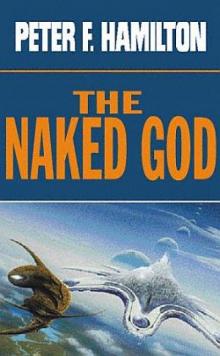 The Naked God - Faith nd-6
The Naked God - Faith nd-6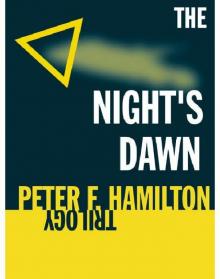 The Night's Dawn Trilogy
The Night's Dawn Trilogy Pandora's Star cs-2
Pandora's Star cs-2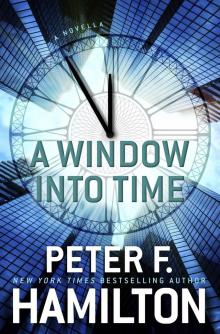 A Window into Time (Novella)
A Window into Time (Novella)